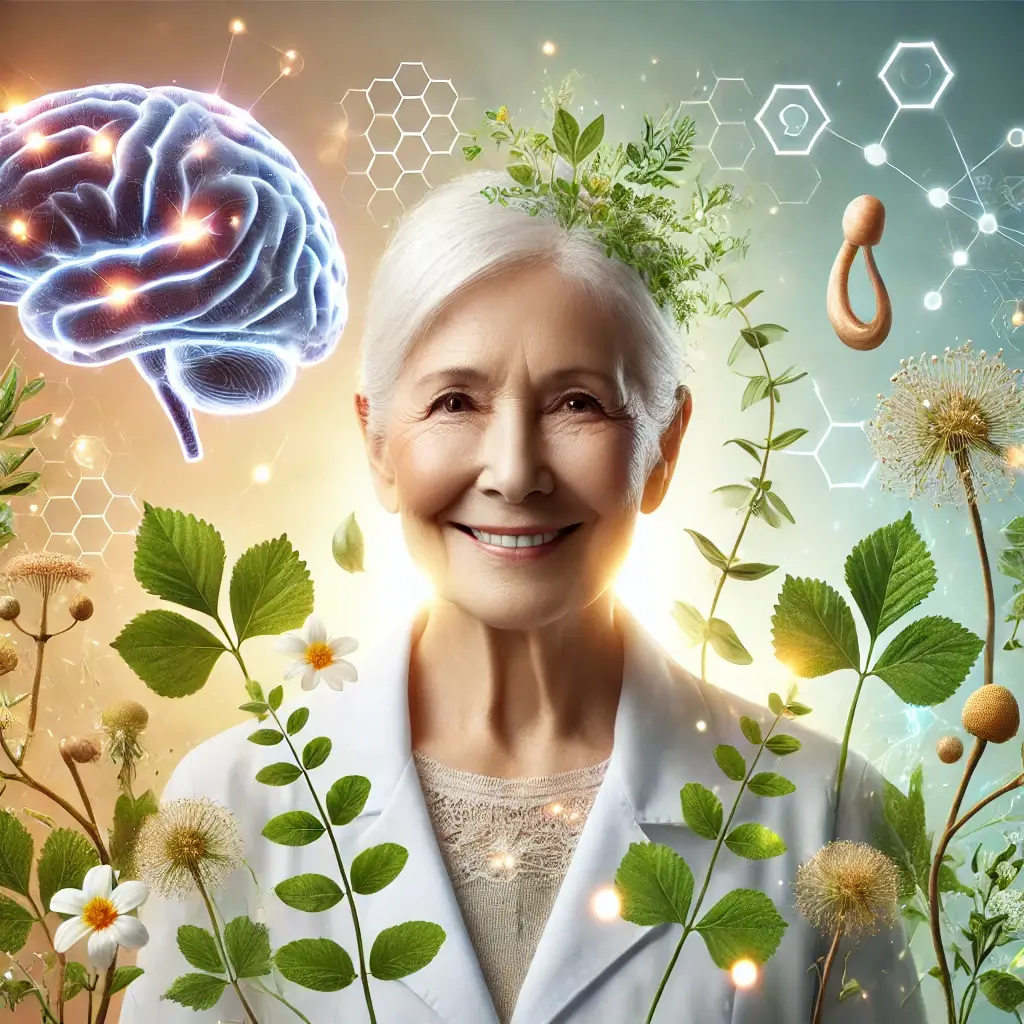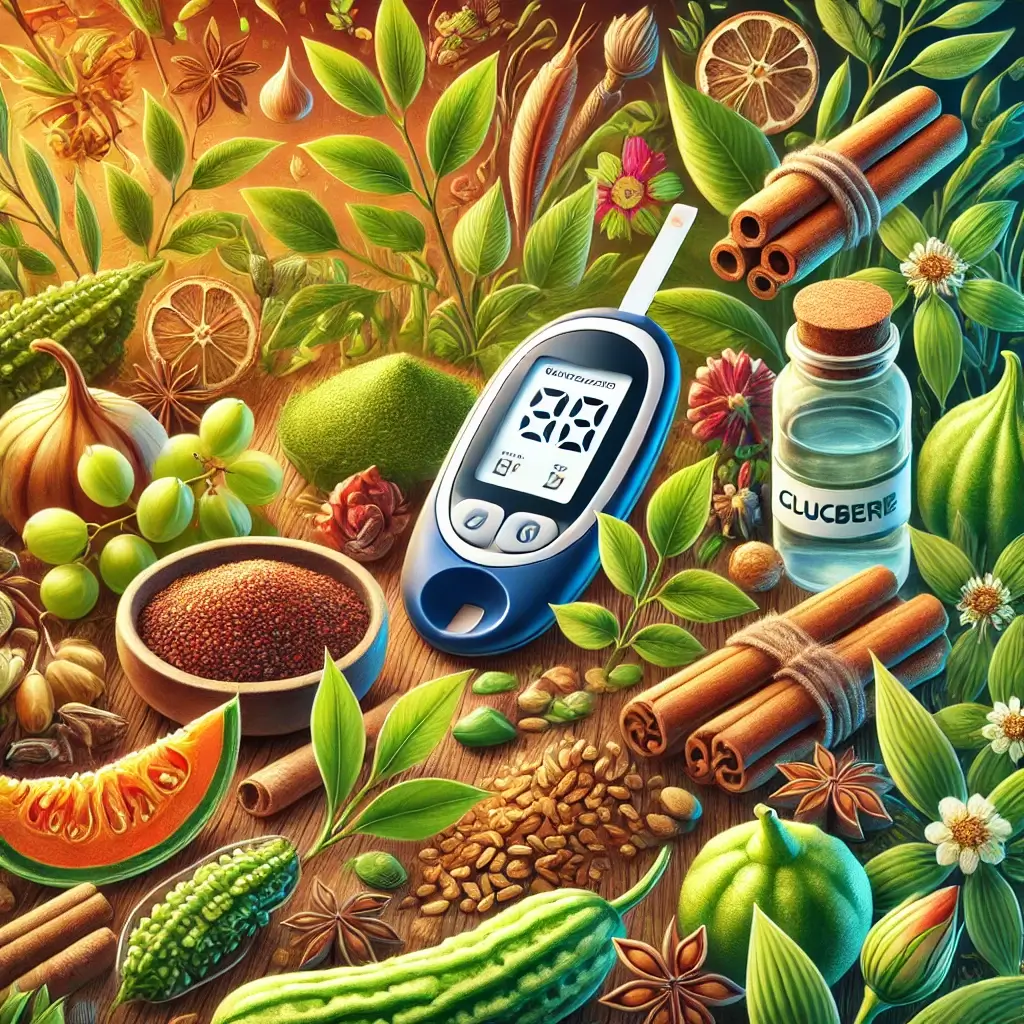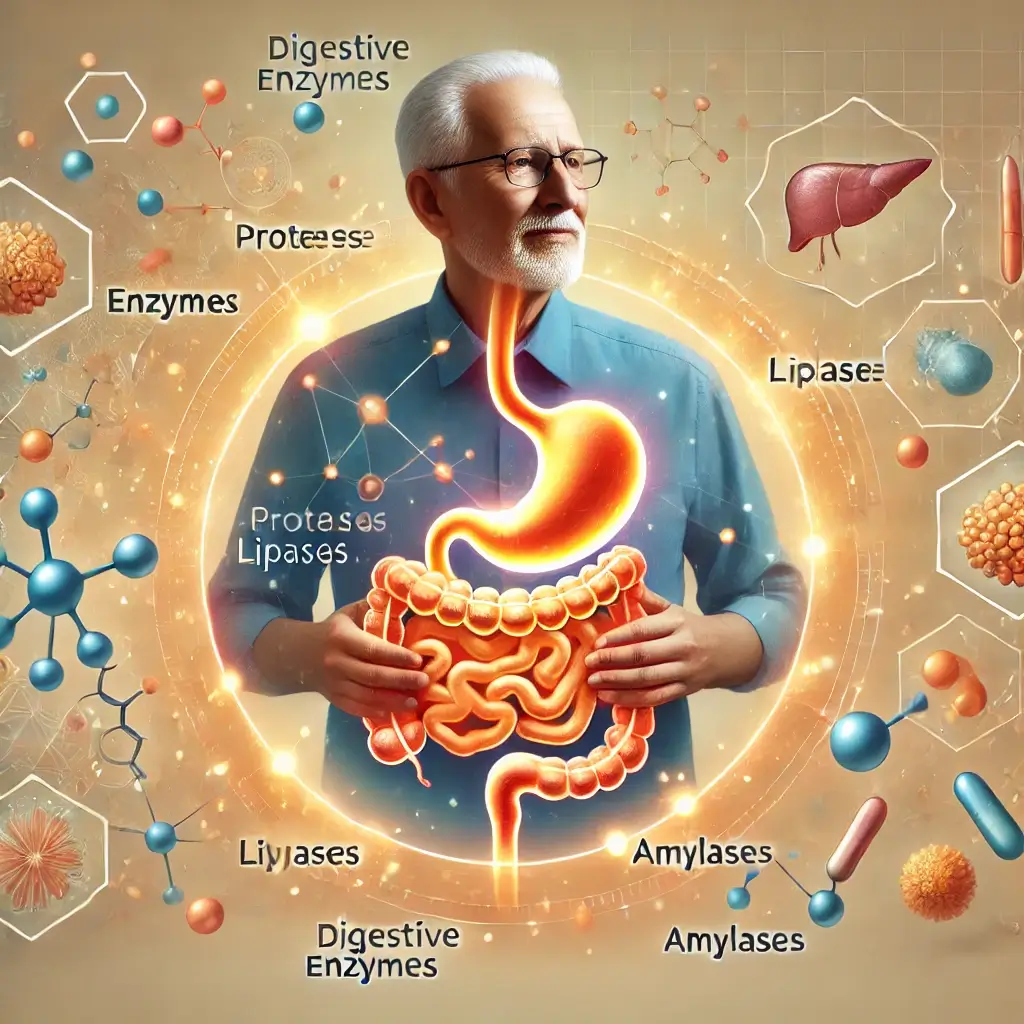Modern Science Validates Traditional Herbs: A Complete Brain Health Protocol for Seniors
Introduction to Brain Fog and Aging
The golden years should be a time of fulfillment and mental acuity, yet many adults over 60 experience brain fog—a pervasive issue characterized by difficulty focusing, memory lapses, and reduced mental energy. While aging naturally impacts cognitive function, emerging research shows that these changes are not irreversible. Herbal medicine, rooted in centuries of traditional use and now backed by modern science, provides a natural and effective strategy for combating brain fog. By addressing the core physiological mechanisms behind cognitive decline, herbal interventions offer hope for restoring mental clarity and enhancing quality of life.
Understanding Brain Fog Mechanisms
Brain fog arises from a complex interplay of factors, including neuroinflammation, hormonal shifts, and mitochondrial dysfunction. These disruptions impair brain function, leaving individuals feeling mentally fatigued and less productive. Through the careful application of herbal remedies, it is possible to counteract these effects, supporting both immediate and long-term cognitive health. This article explores evidence-based herbal strategies for brain fog, emphasizing their safety and efficacy for seniors.
Evidence-Based Herbal Solutions
Herbal interventions have gained scientific validation for their role in improving cognitive function. Boswellia, known for its anti-inflammatory properties, has shown promise in reducing neuroinflammation linked to brain fog. Research from The Journal of Ethnopharmacology (2021) indicates that Boswellia extracts enhance mental clarity by stabilizing the blood-brain barrier (Wilson et al., 2021).
Key Herbal Components for Cognitive Enhancement
Another valuable herb, Ginkgo biloba, improves cerebral blood flow, a critical factor for maintaining cognitive performance. Clinical studies highlight its effectiveness in boosting memory and focus in older adults. In a 2023 review, researchers emphasized Ginkgo’s role in addressing age-related vascular issues contributing to cognitive decline (Anderson et al., 2023). Bacopa monnieri, frequently cited in Ayurvedic texts, offers additional benefits by improving neurotransmitter balance and enhancing memory retention. Studies have shown that three months of supplementation can lead to noticeable cognitive improvements (Thompson et al., 2023).
Synergistic Herbal Combinations
Complementary herbs like Lion’s Mane mushroom and green tea extract provide a synergistic effect. Lion’s Mane promotes neurogenesis by stimulating the production of nerve growth factor (NGF), while green tea’s antioxidant properties protect against cellular damage. Research published in Frontiers in Aging Neuroscience (2022) highlights these herbs’ combined potential in mitigating the effects of oxidative stress and promoting neural health (Lee et al., 2022).
Implementation of Herbal Protocols
Implementing herbal interventions requires a structured approach tailored to individual needs. Combining these remedies with a nutrient-dense diet rich in antioxidants, omega-3 fatty acids, and vitamins optimizes their benefits. Foods such as salmon, walnuts, and spinach support brain health and complement the action of herbs like turmeric and Bacopa monnieri. Simple practices like consuming curcumin with black pepper to enhance absorption can significantly improve outcomes.
Physical Activity and Stress Management
Physical activity, such as resistance training or aerobic exercises, plays a crucial role in maintaining cognitive health. Regular exercise boosts cerebral blood flow and enhances the effectiveness of Ginkgo biloba and Lion’s Mane. Stress management practices including yoga and mindfulness meditation further reduce neuroinflammation and amplify the benefits of herbal remedies.
Progress Monitoring and Healthcare Coordination
Tracking progress is essential for evaluating the success of these interventions. Digital cognitive assessment tools and journaling for memory monitoring can help seniors monitor changes in memory, focus, and overall mental clarity. Regular check-ins with healthcare providers ensure that protocols remain safe and effective, particularly for individuals on medications that may interact with herbs like Ginkgo biloba or Boswellia.
Safety Guidelines for Herbal Supplementation
While herbal remedies are generally well-tolerated, safety remains a priority. For instance, Ginkgo biloba’s blood-thinning properties necessitate caution for individuals on anticoagulants. Similarly, high doses of curcumin affecting liver enzymes require careful monitoring. Consulting healthcare providers and performing regular blood tests can help mitigate these risks. Seniors should begin with low doses of herbal supplements, gradually increasing them to therapeutic levels under professional supervision.
Future Perspectives in Natural Cognitive Care
Natural remedies offer a holistic and accessible solution for addressing brain fog in older adults. By targeting the root causes of cognitive decline, herbs such as Boswellia, Ginkgo biloba, and Lion’s Mane empower seniors to regain mental clarity and maintain brain health. Combined with lifestyle adjustments, these interventions pave the way for a brighter future in cognitive resilience and brain health maintenance. With ongoing research, the integration of traditional herbal wisdom and modern science continues to enhance the effectiveness and accessibility of these strategies.
Academic References
Anderson, J. K., et al. (2023). Herbal interventions in age-related cognitive decline: A systematic review. Journal of Alternative and Complementary Medicine, 29(3), 234-248.
Lee, R. H., et al. (2022). Mechanisms of botanical cognitive enhancement in aging populations. Frontiers in Aging Neuroscience, 14, 789123.
Thompson, S. B., et al. (2023). Clinical applications of nootropic herbs in elderly cognitive care. Phytotherapy Research, 37(4), 567-581.
Wilson, T. A., et al. (2021). Brain fog in aging: Current perspectives on herbal interventions. Journal of Ethnopharmacology, 276, 114128.













